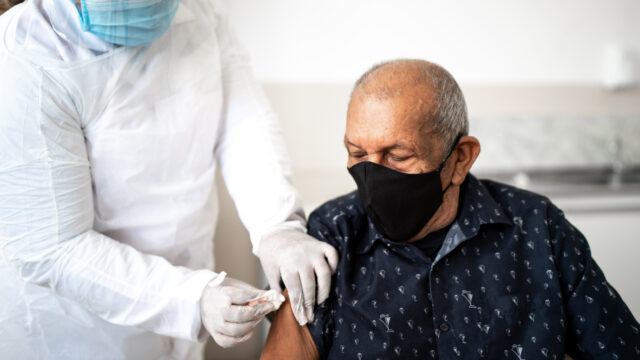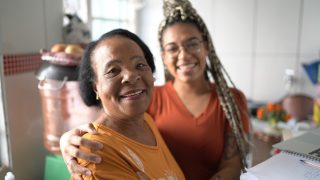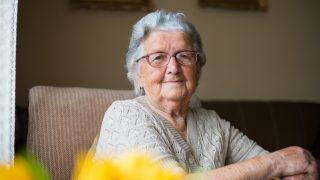Access to the COVID-19 Vaccine for Older Adults who are Homebound

TFAH is working to better understand the challenges, explore potential solutions, and identify innovative vaccine distribution mechanisms for older adults and people with disabilities who are homebound. Please read our policy brief and one-pager on this issue .
TFAH also held a webinar that explored the challenges and policy barriers to vaccine access and highlight innovative vaccine distribution practices for homebound individuals.
Guide to Innovative Practices
COVID-19 vaccination efforts for those who are homebound continue to be implemented, and there is an ongoing evolution of practices to support them. This guide is designed to assist entities organizing homebound COVID-19 vaccination programs and details innovative practices in use across the country, including the essential role of non-traditional partnerships.
Huddles
In partnership with The John A. Hartford Foundation and the Cambia Health Foundation, TFAH is held a series of “Huddle” calls on Wednesdays at 4 pm ET and Fridays at 12:30 pm ET. These 30 minutes calls provided just-in-time information on innovative practices, as well as a platform for discussion and brainstorming among participants.
- March 5, 2021 – featuring the American Academy of Home Care Medicine
- March 10, 2021 – featuring the National Association of Area Agencies on Aging
- March 12, 2021 – featuring the Centers for Disease Control’s Vaccine Task Force
- March 17, 2021 – featuring the Visiting Nurses Association (VNA) Health Group
- March 19, 2021 – featuring the U.S. Department of Veterans Affairs
- March 24, 2021 – discussion of the policy brief recommendations
- March 26, 2021 – featuring the Executive Office of Elder Affairs, Commonwealth of Massachusetts
- April 2, 2021 – featuring the Florida Department of Health – Seminole County
- April 7, 2021 – featuring Bloom Healthcare
- April 9, 2021 – discussion of the policy brief recommendations
- April 14, 2021 – featuring the Administration for Community Living
- April 16, 2021 – featuring the Centers for Disease Control and Prevention
- April 21, 2021 – featuring the Association of University Centers on Disabilities
- April 23, 2021 – featuring LeadingAge
- April 28, 2021 – discussion of the Guide to Innovative Practices
- April 30, 2021 – featuring National Domestic Workers Alliance

